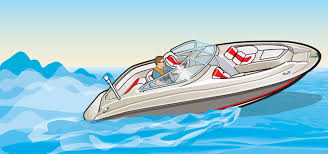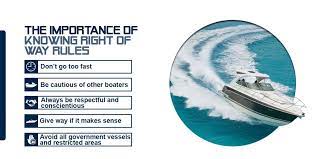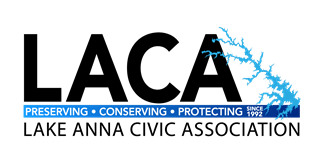By John Crowe - September 2021
It is always a game changer when you get in your boat and head out onto the lake. It seems like the stresses of the day and all your cares are left behind. It’s just you, your compatriots, and the lake, ready to enjoy whatever activity you are pursuing. Whether it is Fishing, Kayaking, Sailing, Powerboating, Watersports or just hanging out, that singular commonality is having a great time on the lake.
To make this possible for everyone with whom we share our beautiful Lake Anna, there are some simple and straightforward guidelines of etiquette which are easily followed but often forgotten.
If you are doing something at the expense of others a change is needed:
Everyone has their own ways of having fun on the lake, and that can generally be accommodated without a problem. If it is safe, doesn’t cause harm, and doesn’t hamper other people’s ability to have a good time it is probably O.K. This requires a conscious effort to assess what you are doing and how it may affect other people and property.
Think about where you are on the lake, what type of activities are being undertaken in the area and how your activity may fit, or not fit with other activities in the area. For instance, if you consider an area where many people are hanging out anchored, beached, swimming, fishing, kayaking, paddleboarding, congregating on the shorelines and chilling on their docks, this might not be where you should be wake-surfing, blasting music, or racing about back and forth on high powered (and loud) watercraft. The wake disturbance, noise and chaotic watercraft traffic can create hazards and will surely significantly detract from the potential for everyone around who is also trying to have a great day on the lake. These more sedentary activities are not portable, but powerboat activities are, so you should think about moving away from these areas and seek more open water where you can enjoy your favorite activity, without doing it at the expense of others.
In addition to the people and activities, consider the affect your chosen activity may have on the lake, it’s shorelines and the many structures built into the lake. Powerboats all have wakes, the bigger the more impactful. The closer you are to a shoreline or a structure, the greater impact your activity will have.  “Shredding” the same shoreline or cove repeatedly will do exactly that to the shoreline. The damage wakes can do to the shorelines can be seen all around the lake and has impacted homeowner properties and undeveloped areas as well. Wakes dissipate and get smaller over distance. The further from structures and shorelines these activities can be done the better. The popularity of wake surfing has brought this issue to the forefront in recent years. By design wake surfing requires very large wakes with specialized boats to create them. Those who are choosing this as their preferred activity should take extra precautions to ensure they minimize the impact these extraordinary wakes have on the shorelines and structures. These wakes should never be generated near shores, structures, other boats, or people. Move to open water away from shorelines and other boats so your wakes have time to shrink before coming ashore or swamping other boats or swimmers!
“Shredding” the same shoreline or cove repeatedly will do exactly that to the shoreline. The damage wakes can do to the shorelines can be seen all around the lake and has impacted homeowner properties and undeveloped areas as well. Wakes dissipate and get smaller over distance. The further from structures and shorelines these activities can be done the better. The popularity of wake surfing has brought this issue to the forefront in recent years. By design wake surfing requires very large wakes with specialized boats to create them. Those who are choosing this as their preferred activity should take extra precautions to ensure they minimize the impact these extraordinary wakes have on the shorelines and structures. These wakes should never be generated near shores, structures, other boats, or people. Move to open water away from shorelines and other boats so your wakes have time to shrink before coming ashore or swamping other boats or swimmers!
Be courteous and give way to others
There are no marked lanes or traffic control signs or signals to manage traffic on the lake. There are no laws governing right of way as there are on our roads and traffic management is left to the boaters to manage themselves. While the controls and laws are absent, the protocols and priorities do exist, and we all need to remain conscious that it is up to each of us to know the “rules of the road” (lake), and “collaborate to cooperate” to have a safe and pleasant boating experience. Let’s keep “road rage” off the lake!
Here are some rules to live by to “give way” or let them go by, altering your course or speed:
- Powerboats should always give way to non-power boats
Sailboats, kayaks, paddleboards, etc.
Steer clear and minimize wake impacts
- Always give way to a boat towing a person (tubing, skiing, surfing)
Do not cut in front of and do not follow closely
- Keep your distance from other boats and avoid erratic course changes
Keeping a steady course helps other boaters know your intention
- Moderate you speed to match your environment/location
Too fast through crowded areas is dangerous
Try to match the traffic flow
- Complete your required boater safety certification to operate a boat, it’s the law
“Rules of the road” are given in detail for safe and courteous boating
- If another vessel is approaching you from the port — or left — side of your boat, you have the right of way and should maintain your speed and direction.
- If a vessel is aiming to cross your path and they're on your starboard — or right — side, they have the right of way
A little courtesy goes a long way on the lake. Slowing down to let a boat pass or altering your course to contribute to safe and courteous traffic flow will not hamper your ability to enjoy your day on the lake.  It is a responsibility we all share: to work together and respect each other and the lake we cherish.
It is a responsibility we all share: to work together and respect each other and the lake we cherish.
So, remember, each of us must do our part to ensure we can all enjoy the lake, entertain our chosen activities, and do so in a safe and courteous manner while minimizing impacts of our behavior on the lake and on each other. Follow the Golden Rule!
john.crowe@lakeannavirginia.org
